
Ferguson
play a familiar tune especially for those of Palestinian descent. (Photo: Al Arabiya)" width="334" height="187" /> The events of Ferguson play a familiar tune especially for those of Palestinian descent. (Photo: Al Arabiya)By Joyce Karam | Al Arabiya News
From Ferguson to New York, Palestinian flags and signs bearing Arabic slogans against racism and for “Ittihad” (unity) were numerous in the protests condemning the police killing of Michael Brown and Eric Garner. On one hand, they illustrate the common struggle that many Arabs, Muslim and African-Americans seek against racial profiling, prejudice and discrimination. For another, they bridge the gap that for a long time has kept these communities apart.
While Arab-Americans and Muslims who immigrated to the United States, were not instrumental in the struggle for civil rights for African-Americans from the 1960s onwards, they are vocal and active in the demonstrations taking place across the U.S. today. Several Arab-American, Muslim organizations and independent activists are either on the ground in different U.S. cities or raising awareness and hosting events in solidarity with the protestors.
9-11 As A Wake-Up Call
Also Read: Be Careful of the Trap of Deploying Peacekeeping Forces to Gaza
Margari Aziza Hill, a co-founder and activist with the “Muslim Arc” organization dedicated to combatting racism, tells Al-Arabiya News that the attacks of September 11, 2001 were a “a wake up call” for the Arab and Muslim communities. Policies related to surveillance of mosques in the United States or spying on Muslim student organizations, forced a more “pro-active engagement in issues related to civil liberties” from the community.
“It has emphasized that we are part of the same tapestry in this struggle” says Aziza Hill, explaining a shift in the narrative from withdrawing and focussing on international issues prior to 9/11, into “taking a stand and coming to table in fighting discrimination and ending racism”. Surveillance of mosques and spying on Muslim student groups are some of the many “anti-terrorism” efforts carried by the New York Police Department (NYPD) following 9-11. In a way, it has “created greater empathy in the community with what is happening in Ferguson” says Aziza-Hill, adding that “racial profiling is the same whether it’s a Muslim at the airport or an African-American on the street.” More than three million Arab Americans live in the United States today, and around two million Muslims according to PEW. The FBI has recorded 130 hate crimes against Muslims in the US in 2012, while this number stood at 32 hate crimes in 1999.
The shift has also occurred in the other direction, whereby Muslims “are no longer perceived as foreigners” in the United States but rather “as a minority with its own set of concerns and struggles.” More than a quarter of Muslims in the United States are African-Americans, and key figures in U.S. society such as former activist Malcolm X, renowned boxer Muhammad Ali and the first Muslim Congressman Keith Allison come from this community.
Familiar Tune For Palestinians
Also Read: The Forty-Four-Days of Glory: Azerbaijan’s Struggle for Justice and Peace

Ferguson
play a familiar tune especially for those of Palestinian descent. (Photo: Al Arabiya)" width="296" height="222" /> The events of Ferguson play a familiar tune especially for those of Palestinian descent. (Photo: Al Arabiya)The events of Ferguson play a familiar tune especially for those of Palestinian descent, says Warren David, a life-long activist in the Arab-American community and the president of “Arab America.” Many Palestinian-Americans who have “seen firsthand the oppression in the West Back and Gaza, are on the ground protesting the killing of Michael Brown and Eric Garner”, David said.
The U.S. Palestinian Community Network and St. Louis Palestine Solidarity Committee are two of many Arab-American and Muslim organizations that are being active with the protests in major US cities today. Palestinian-American Activist Bassem Masri has been live streaming the events in Ferguson. “New generations of Arab-Americans have assimilated better in the United States” says David, albeit that the struggle against prejudice and discrimination “has been with us for a long time”, he adds.
Warren David reminds of the story of Vincent Jen Chin, a Chinese-American who was beaten in a racially-charged attack in Detroit in 1982. Chin, while not Japanese himself, was a victim of prejudice against Japanese automakers whose sales then had hurt car sales in Detroit. Alex Odeh is another name that David points to as a casualty of anti-Arab prejudice in California. Odeh, a Palestinian activist, died in a bomb planted near his office door in 1985.
The struggle against police actions is close to the heart of many Arab youth who live in the U.S. and who have fled authoritarian regimes in their home countries. Aziza-Hill compares images of Ferguson to those she had witnessed in “Cairo in protests against living conditions in 2007 and 2008” and which were met by a heavy handed police force.
Also Read: Palestine Solidarity Month: A Collective Movement for Al-Aqsa and Palestine’s Freedom
Both David and Aziza-Hill see the problem in the U.S., however, as deeper than the symptomatic cause of police action. While addressing police reform is important, they both point to structural problems in education, inter-cultural training and dialogue and poverty as driving racial discrimination and prejudice. For now, Muslims and Arabs joining hands with the African-American community is one step in a long journey towards more equal rights for those communities. (T/P011/R04)
Mi’raj Islamic News Agency (MINA)
Also Read: Hassan al-Turabi: A Controversial Thinker from Sudan





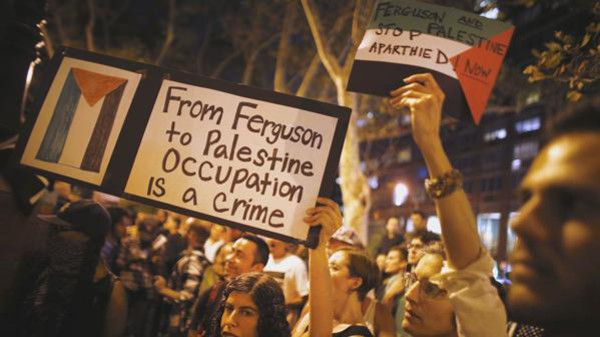


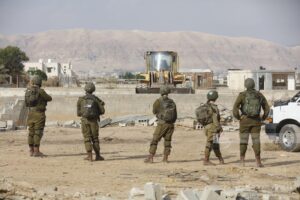
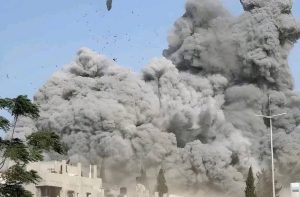
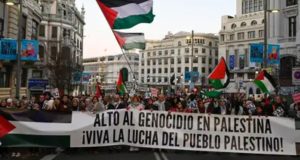

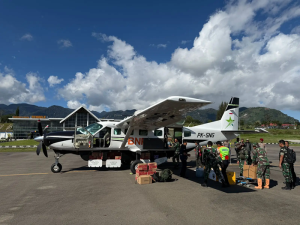
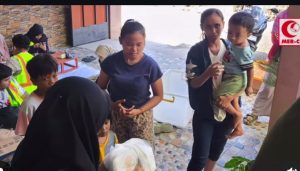
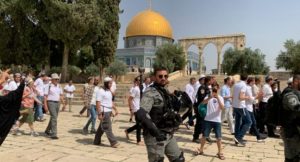
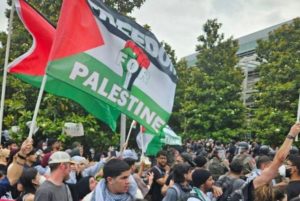
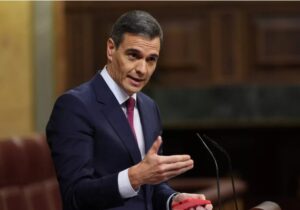
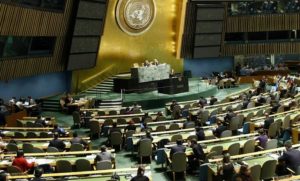

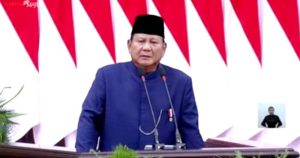








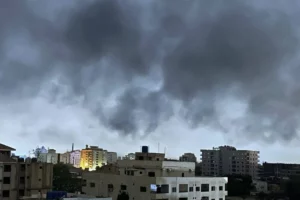





 Mina Indonesia
Mina Indonesia Mina Arabic
Mina Arabic